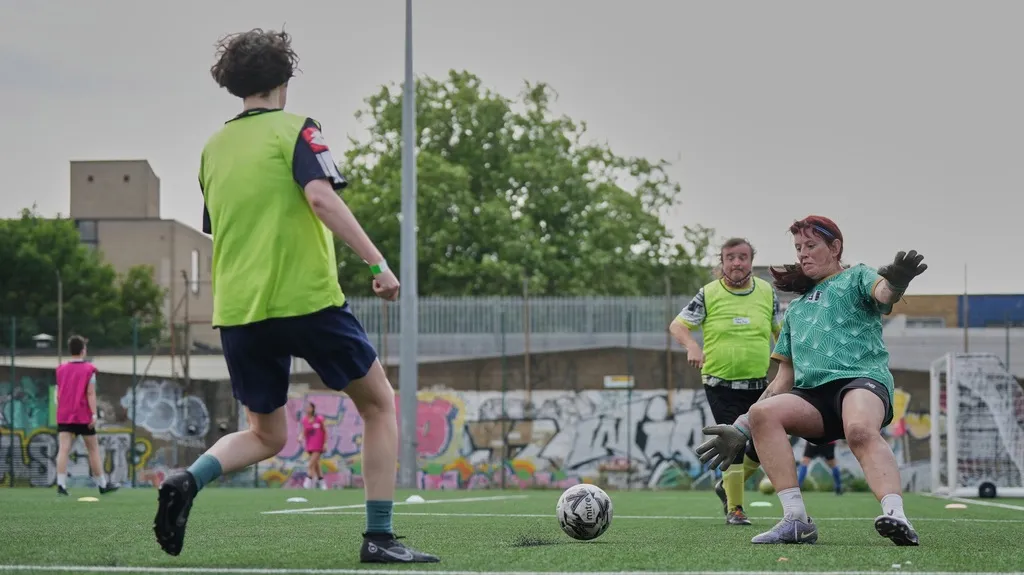May 2, 2011
Study Offers Insight into Black MSM HIV Rates
Kilian Melloy READ TIME: 3 MIN.
Black men who have sex with men (MSM) are up to five times more likely to contract HIV than other MSM. A new study offers insights into the disparity, a release from Johns Hopkins Medical Institutions News Medical.net article said.
The release was carried at multiple online health sites.
One puzzling aspect regarding the higher rate of HIV infection among black MSM is that the demographic practices safer sex at comparable rates to other groups. Johns Hopkins researchers have determined that a number of factors may account for the higher HIV rates, including how black men who have sex with men--including gay men, bisexuals, and heterosexuals who do not regard themselves as gay or bi despite their same-gender sexual conduct--choose their partners and judge the risks involved.
"These men show a clear preference for masculine men, while also equating masculinity with lower HIV risk," the News Medical.net story said. "This dynamic, the researchers say, can help explain why young black MSM contract HIV more often than their counterparts from other races."
The perception that "masculine" men are less likely to carry HIV, coupled with the choice to leave decisions regarding condom use to the discretion of the partner rather than insisting upon it, help account for the disparity in HIV rates, the study's authors suggested.
"There may be no difference in HIV prevalence between masculine-looking and feminine-looking men, but because black MSM perceive masculine men as lower risk, their sexual encounters with such men may make HIV infection more likely," Johns Hopkins Children's Center's Jonathan Ellen said.
"In other words, even though young black MSM have unprotected sex just as often as others, they may be having unprotected sex in riskier ways with partners whose HIV status they often miscalculate, the researchers explain," the News Medical.net story reported.
The new insights offered by the study suggest new avenues for outreach and education, including how physicians discuss sexual health with their patients, the article said.
The study, titled "Young Black Males' Conflict between Masculinity and Homosexuality: Implications for HIV Risk," also suggested that young black MSM struggle with cultural demands that increase the fear of rejection and isolation based on sexuality.
"As a result of the conflict between homosexuality and cultural expectations of masculinity, young Black MSM may experience--or fear they will experience--rejection from important social supports," the study said. "This conflict may further isolate them during a developmental stage when interpersonal attachments are critical.
"These findings have important implications for HIV risk, as lack of social support has been associated with increased HIV risk behavior," the study added. "The potential for social isolation engendered by the conflict between homosexuality and cultural expectations is important to consider in HIV prevention strategies directed towards young Black MSM."
The study said that its "findings suggest there are more complex factors affecting the risk of exposure to an infected partner. One such factor may be the conflict between homosexuality and race-specific conceptions of masculinity."
A study released last year by the Centers for Disease Control and Prevention (CDC) that focused on 21 cities around the country found that 1 in 5 MSM are HIV+, and noted that young black MSM may have a higher rate of not knowing their HIV status. That study indicated that 28% of black MSM were HIV+, as compared to 18% of Hispanic MSM. The rate for Caucasian MSM was found to be 16%.
The presentation of the new Johns Hopkins study and its results took place at this year's Annual Meeting of the Pediatric Academic Societies, which continues through May 3 in Denver, Colo.
Kilian Melloy serves as EDGE Media Network's Associate Arts Editor and Staff Contributor. His professional memberships include the National Lesbian & Gay Journalists Association, the Boston Online Film Critics Association, The Gay and Lesbian Entertainment Critics Association, and the Boston Theater Critics Association's Elliot Norton Awards Committee.


